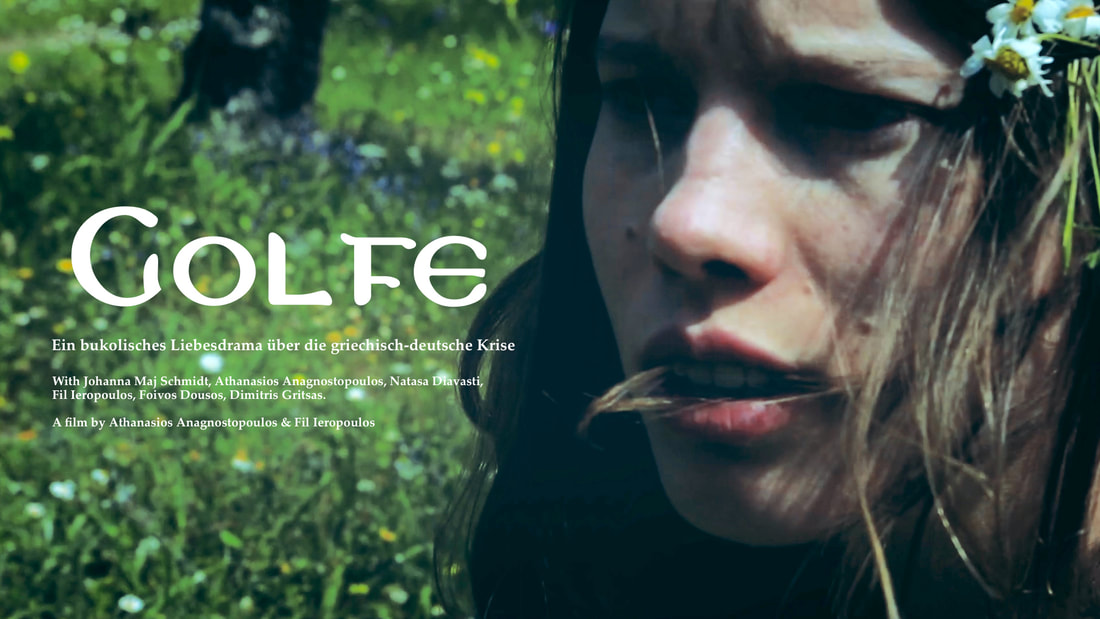|
GOLFE Ein bukolisches Liebesdrama über die griechisch-deutsche Krise. Ένα βουκολικό ειδυλλιακό δράμα για την ελληνογερμανική κρίση. Golfe is an adaptation of the 19th-century bucolic idyll of Golfo and the eponymous first silent feature film of Greek cinema in 1914. The film reimagines the classic late 19th-century greek drama in a 21st-century context rethinking the recent European economic and political crisis between Greece and Germany. The new story of Golfe highlights particular ideological traits that gained popularity within the indignation movement and parliamentary politics in Greece during the time of an imminent Grexit. The film employs elements of Esoteric Nazism, Perennialism, Eurasianism, and the Third-Rome doctrine to reflect on nationalism and the dark ideological intricacies of that period. |
The plot Golfe is a young German shepherdess living in a remote Greek village. She is a poor orphaned serf owned by the local chieftain Zisis. Her beauty attracted the interest of the spoiled Kitsos, the chieftain’s Vlach nephew. Yet, Golfe is in love with the kind shepherd Tasos and their innocent romance leads to an engagement. This romance goes against Zisis’s politics, as he plots an arranged and purely orthodox marriage for Tasos with his half-Russian daughter Stavroula. Tasos is bribed and eventually marries Stavroula. Golfe betrayed and devastated curses the couple, yet by divine intervention, she assumes the sacred duty to forgive Tasos, endure the pain and sacrifice herself. Tasos regrets his betrayal and interrupts his wedding. He runs to Golfe too late as she has poisoned herself. Tasos commits suicide by her side. Is Golfe dead though? |
|
All rights reserved © Athanasios Anagnostopoulos, Fil Ieropoulos

